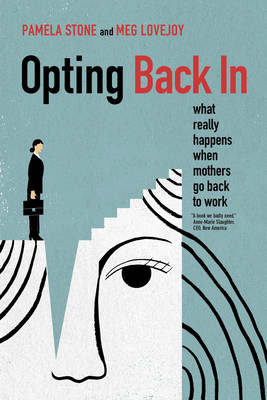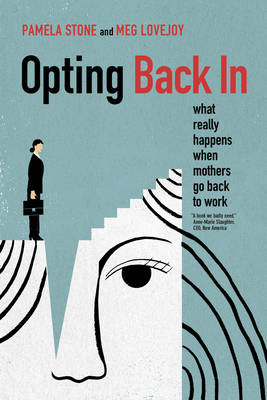
- Afhalen na 1 uur in een winkel met voorraad
- Gratis thuislevering in België vanaf € 30
- Ruim aanbod met 7 miljoen producten
- Afhalen na 1 uur in een winkel met voorraad
- Gratis thuislevering in België vanaf € 30
- Ruim aanbod met 7 miljoen producten
Zoeken
Opting Back in
What Really Happens When Mothers Go Back to Work
Pamela Stone, Meg Lovejoy
Paperback | Engels
€ 43,45
+ 86 punten
Uitvoering
Omschrijving
Taking a career break is a conflicted and risky decision for high-achieving professional women. Yet many do so, usually planning, even as they quit, to return to work eventually. But can they? And if so, how? In Opting Back In, Pamela Stone and Meg Lovejoy revisit women first interviewed a decade earlier in Stone's book Opting Out? Why Women Really Quit Careers and Head Home to answer these questions. In frank and intimate accounts, women lay bare the dilemmas they face upon reentry. Most succeed but not by returning to their former high-paying, still family-inhospitable jobs. Instead, women strike out in new directions, finding personally gratifying but lower-paid jobs in the gig economy or predominantly female nonprofit sector. Opting Back In uncovers a paradox of privilege by which the very women best positioned to achieve leadership and close gender gaps use strategies to resume their careers that inadvertently reinforce gender inequality. The authors advocate gender equitable policies that will allow women--and all parents--to combine the intense demands of work and family life in the twenty-first century.
Specificaties
Betrokkenen
- Auteur(s):
- Uitgeverij:
Inhoud
- Aantal bladzijden:
- 264
- Taal:
- Engels
Eigenschappen
- Productcode (EAN):
- 9780520290822
- Verschijningsdatum:
- 23/02/2021
- Uitvoering:
- Paperback
- Formaat:
- Trade paperback (VS)
- Afmetingen:
- 140 mm x 221 mm
- Gewicht:
- 362 g

Alleen bij Standaard Boekhandel
+ 86 punten op je klantenkaart van Standaard Boekhandel
Beoordelingen
We publiceren alleen reviews die voldoen aan de voorwaarden voor reviews. Bekijk onze voorwaarden voor reviews.











